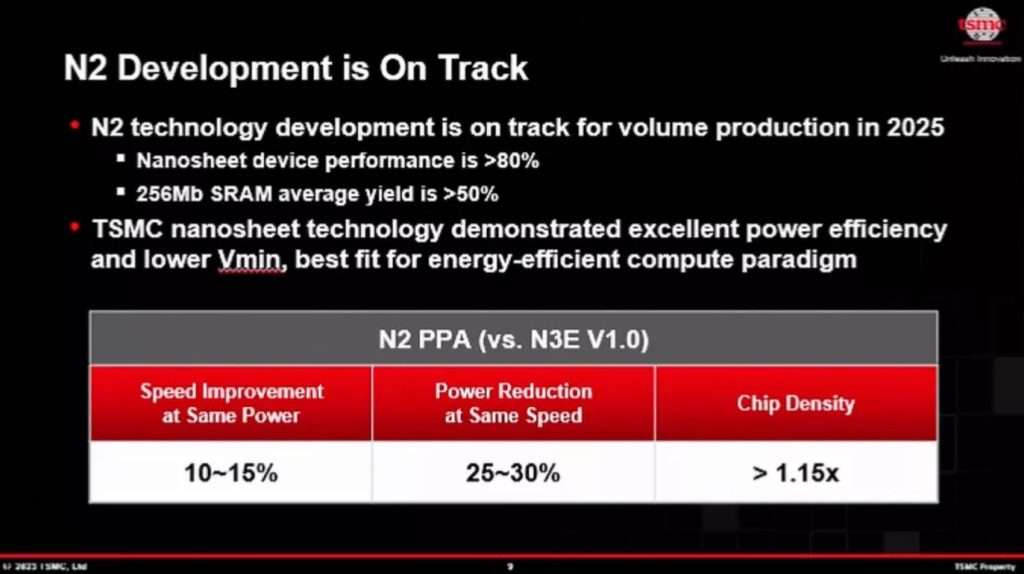In September, Apple is anticipated to unveil the iPhone 16 series, followed by the iPhone 17 series in 2025. The upcoming lineup has already attracted attention with numerous leaks revealing details about this year’s models. Now, speculations are swirling about the features of the 2025 lineup, with rumors suggesting the inclusion of a groundbreaking 2nm chip manufactured by TSMC.
A recent report unveils that the iPhone 17 Pro and iPhone 17 Pro Max are set to pioneer the use of a 2nm processor. Manufactured by TSMC, these new “N2” chips are scheduled to commence production later in the year, with mass manufacturing expected to start in 2025. While the report doesn’t disclose the official name of Apple’s 2nm SoC, following the company’s naming tradition, it may likely be named the A19 Pro.
TSMC is not only developing the 2nm N2 chips but is also reportedly working on an improved 2nm process node called “N2P“. This new node is anticipated to enter mass production towards the end of 2026. However, it remains uncertain whether the N2P chips will debut in the iPhone 18 Pro or the iPhone 19 Pro.

After the release of the 2nm chips, TSMC’s attention is expected to shift towards developing 1.4nm processors, which are internally referred to as “A14“. This suggests a continuous advancement in semiconductor technology as the industry moves towards smaller, more efficient processors for future Apple devices.
TSMC has revealed limited details about its upcoming 2nm process node, but recent statements from the company suggest significant improvements. The 2nm process is expected to boost transistor density by 15 percent compared to the N3E process, which is likely to be used in the A18 Pro chips for the upcoming iPhone 16 Pro and Pro Max. This increase in density is projected to enhance performance by 10-15 percent, alongside a notable improvement in power efficiency ranging from 25-30 percent.
These advancements hint at a promising future for Apple’s devices, with the potential for the next generation of iPhones to offer not only increased performance but also improved battery life, a crucial factor for smartphone users. As TSMC continues to push the boundaries of semiconductor technology, consumers can anticipate more efficient and powerful devices in the coming years.
In the future, Apple is anticipated to introduce Mac computers featuring 2nm chips, although the report does not provide a specific timeline for their release. Recently, Apple launched updated MacBook Air models, with screen sizes of 13.6 inches and 15.3 inches, powered by the 3nm M3 chip. However, no new Macs are expected to be unveiled this year. The M3 chip boasts nearly a 20 percent increase in speed compared to the M2, along with enhanced graphics capabilities including hardware-accelerated ray tracing. Given these improvements in the M3 chip, the upcoming 2nm M-series chips are highly anticipated for the advancements they could bring to Apple’s Mac lineup.
The progression from the 3nm M3 to the future 2nm M-series chips raises curiosity about the potential performance and features these chips might offer. With Apple’s continued focus on enhancing both processing power and graphical capabilities, users can look forward to more efficient and powerful Mac computers in the pipeline.
Maybe you liked other articles?

